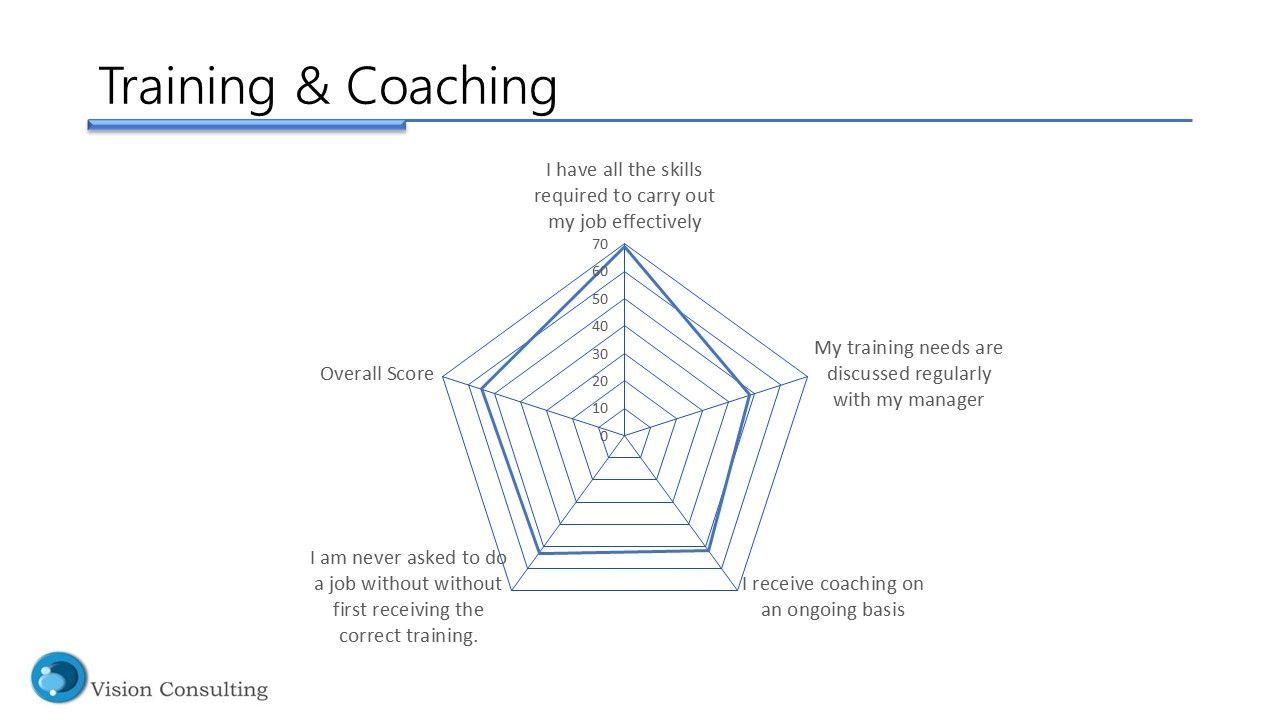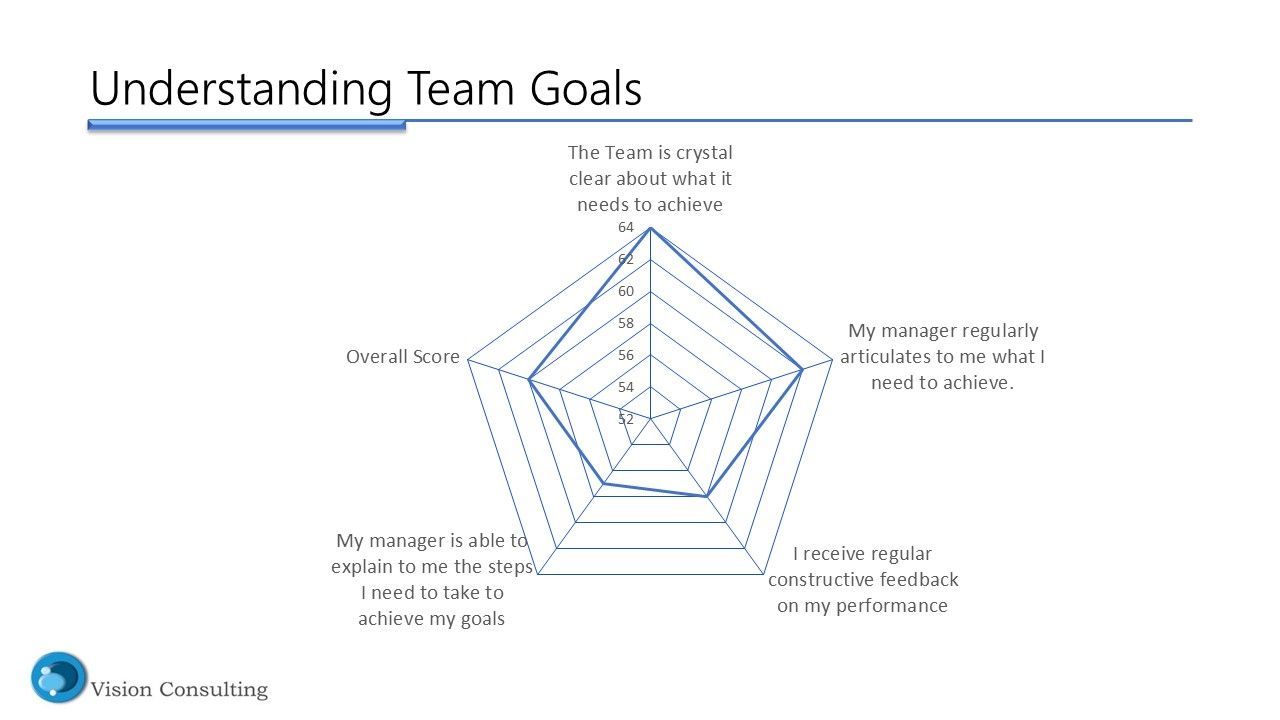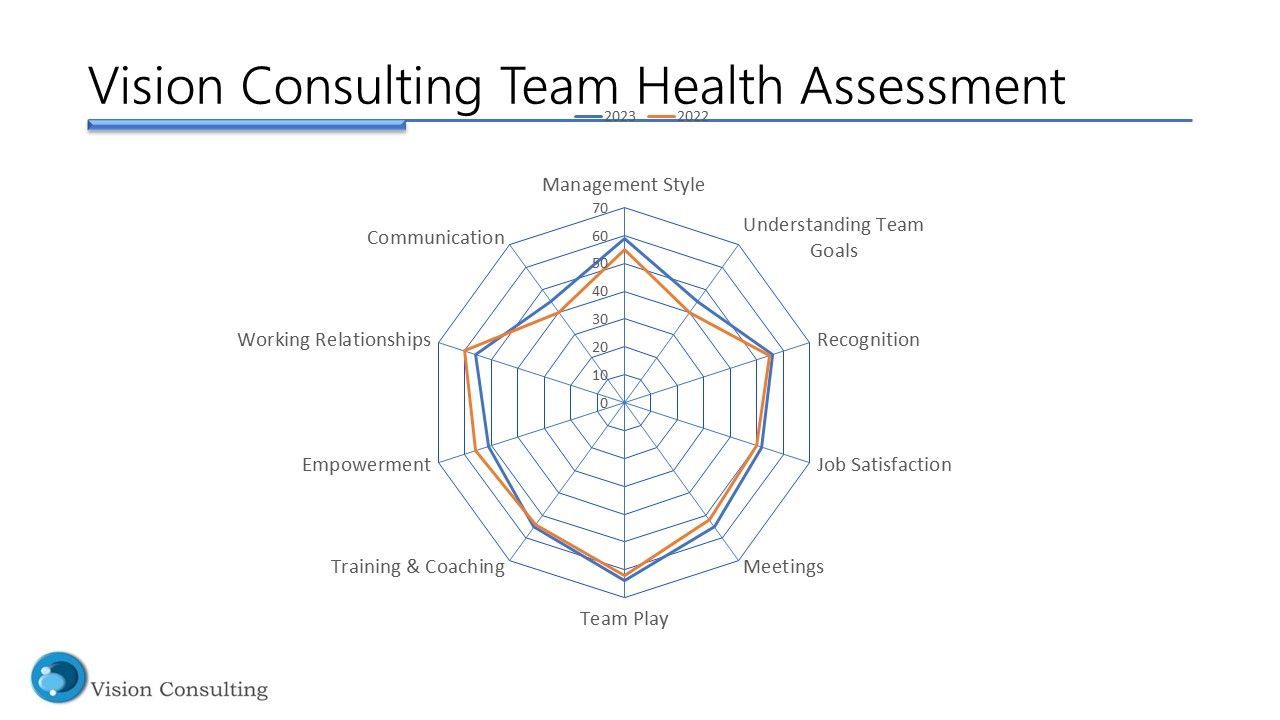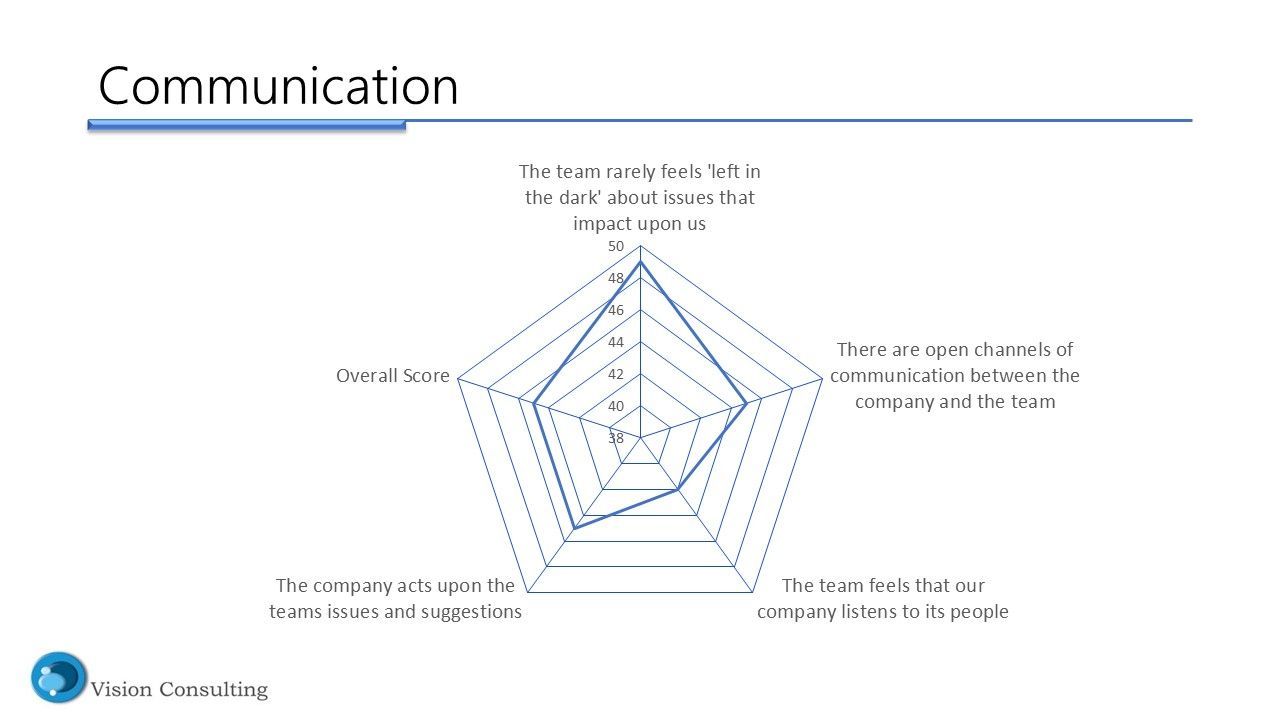Employee Engagement
Our experienced consultants have been undertaking employee engagement activities for over 20 years.
We believe that all organisations should periodically stop to examine how well everyone within the business is performing, what is contributing to their effectiveness and what is interfering with their performance. Teams large or small, much like individuals, should pause and review the vital signs of organisational health; identify the root cause of any issues; and then seek advice that prescribes preventative as well as corrective measures to improve performance.
At Vision Consulting we understand that employee engagement can be informal or formal. Informal engagement can take the shape of leaders and managers asking their colleagues, “How are you doing?”, ”What’s working well?” in the context of a group discussion or a one on one meeting. Asking simple questions can be an effective exercise, but they must be facilitated and managed if the team is to participate in a meaningful way within the process. At the other end of the scale, a detailed employee satisfaction survey can provide helpful insights, but sometimes such surveys fail to uncover real issues within the larger team and if they do, they often fail to provide the context surrounding the issue or potential solutions to the issue which then necessitates further investigation or workshops taking time and inhibiting the introduction of effective “quick win” solutions.
Initially, our consultants used the tradition Employee Survey containing a series of closed and open-ended questions to elicit the feedback of employees. Over the past 5 years, however, we have devised a different approach; we have supplemented questionnaires with interactive workshops.
Using our workshops, we are able to gain an understanding of the extent to which:
- Colleagues understand what they need to accomplish and what actions they need to take to achieve personal, team and organisational goals.
- Colleagues and teams interact with each other within a business to deliver organisational goals.
- Communication methods and structures contribute towards team and organisational performance.
- Leaders and Managers are getting the best out of their people.
- Colleagues feel they are recognised and/or rewarded appropriately for their contribution.
- Colleagues enjoy their work and achieve job satisfaction.
- Colleagues and Teams are empowered in the decision-making process.
We deliver targeted, meaningful and timely evidence of team performance and dynamics contributing to organisational effectiveness, with realistic and sensible advice on improvement opportunities
Our workshop philosophy
Our workshops will provide the vehicle for formulating the survey questions and understanding the results
Workshops will be used as a tool too:
- Understand the current organisational culture.
- Understand what employees like about working for your organisation and what would they like to see improved?
- Create an environment where staff can tell their stories about working for organisation and analyse what these stories tell us about your people, leadership, team-work and internal and external relationships.
- Understand the symbols of your organisation and if staff are proud of these symbols or are they symbols that inhibit communication and performance.
Pre-workshop Activities
Delegates will be asked to complete a number of pre-workshop written activities that they will be asked to present during the workshop. These activities serve several purposes including shaping discussions and creating the mindset in the head of delegates that it is a workshop they are attending rather than a meeting.
Workshop Outputs
We are happy to share the 'raw' workshop outputs with clients. We need to stress that we will not be attributing comments or outputs to named individuals.
After the workshops are completed, our project team along with client stakeholders will meet to discuss the workshops outputs and use them to formulate the question groups and the specific questions for the employee survey.
The outputs of the first workshops will used to provide context as to why individuals may have responded to questions in a particular way. For example, we know that in organisations where teams fail to achieve their objectives it is often due to the fact that:
- Team members are often unclear about exactly what they needed to achieve in the first place.
- Managers are often unable to communicate to team members the steps they need to take to achieve their objectives
- Managers fail to regularly reinforce to team members what their objectives are
- Team members seldom receive constructive feedback on their performance
A second workshop draws upon the outputs of the first workshop to create solutions to the issues and concerns raised in the outputs of the first workshop. In the areas that are Gone Wells the focus of the workshop will be on “how can this be sustained” and “how can we make it even better”
The outputs of the second workshop will create a roadmap of improvements and actions, including several quick wins that if implemented will deliver immediate results.
Vision Consulting Team Health Assessment Results for 2023
For all the results please contact us.
- TV Licensing
- AVON Cosmetics
- Consignia
- Camelot
- Dixons PC World
- Oxfordshire County Council
- Dorset Police (Control Room)
- Child Support Agency
- Santander (contact centre)





